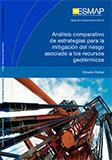Publications
Afghanistan remains in the bottom 10 percent globally in electricity consumption per capita, and only 34 percent of its population is connected to the grid, among the lowest rates in the world. Both the Afghan government and donors have made power sector development a priority, as demonstrated by initiatives such as the Afghanistan National Development Strategy (ANDS) and the National Energy Supply Program (NESP). Energy is one of Afghanistan’s top economic development priorities as electricity is the motor that power the country’s growth.
Afghanistan’s power sector faces a planning challenge of enormous complexity embedded in a high degree of uncertainty. Its local generation capacity has remained stagnant (around 340 MW); the rapid growth in consumption has primarily been met by imports (around 80 percent of the total) especially from Uzbekistan, highlighting the significant vulnerability to interruption of its energy supply.
Planning is a fundamental part of addressing the energy stress in Afghanistan and is essential for attracting future investment. An analytical framework is needed to replace sporadic decision making with informed policy choices that will support national efforts to reduce poverty and share prosperity.
This report develops approaches to power sector planning and investment decision making that respond to the uncertainties that Afghanistan faces, while striking a balance between the three main policy imperatives of economic efficiency, energy security, and environmental sustainability. It aims to provide an alternative to the “predict-then-act” approach to planning that will allow for more robust decision making. Instead of identifying the “best” plan to meet a specific forecasted scenario, it poses a different question: given a set of options that can be practicably implemented, which one of these alternatives is the most robust to the main uncertainties?
This study has demonstrated the importance of a functional and high-quality power planning system. We are planning to take the lessons from this report forward.
Gencer, Defne; John Irving; Peter Meier; Richard Spencer; and Chris Wnuk. 2018. Energy Security Trade-Offs Under High Uncertainty: Resolving Afghanistan’s Power Sector Development Dilemma. Washington, DC: World Bank.

